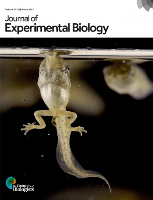
YEAST
Scope & Guideline
Decoding yeast: Bridging microbiology and biotechnology.
Introduction
Aims and Scopes
- Yeast Genetics and Genomics:
Research in this area delves into the genetic makeup of various yeast species, exploring genome editing techniques like CRISPR-Cas9, gene regulation, and the evolutionary implications of genetic diversity. - Metabolic Engineering and Biotechnology:
This scope includes metabolic pathway engineering, the production of biofuels, biochemicals, and food products, and the exploration of yeast as a platform for biotechnological applications. - Yeast Ecology and Evolution:
Studies focus on the ecological roles of yeasts in different environments, their interactions with other organisms, and their evolutionary adaptations to various ecological niches. - Cellular and Molecular Biology:
Research includes detailed investigations into cellular processes, protein interactions, and the molecular mechanisms that govern yeast physiology and stress responses. - Yeast in Health and Disease:
This area examines the role of yeasts in human health, including pathogenic species and their interactions with the human microbiome, as well as their potential therapeutic applications.
Trending and Emerging
- Synthetic Biology and Genome Editing:
The application of synthetic biology techniques, especially genome editing via CRISPR-Cas9, has gained momentum, emphasizing the potential for engineering yeasts for specific applications in biotechnology. - Single-Cell Analysis and Transcriptomics:
There is a notable increase in research utilizing single-cell transcriptomics, which allows for a more nuanced understanding of gene expression dynamics and cellular heterogeneity in yeast populations. - Yeast-Microbe Interactions:
Studies examining the complex interactions between yeasts and other microorganisms, particularly in ecological and fermentation contexts, are on the rise, highlighting the importance of microbial communities. - Yeast as Model Organisms for Human Disease:
The use of yeast as a model for studying human diseases, particularly in genetics and drug discovery, is increasingly prominent, showcasing the relevance of yeast research to broader biomedical questions. - Environmental and Ecological Studies:
Emerging themes include the exploration of yeast diversity in natural environments and their roles in ecosystems, reflecting a growing interest in ecological research related to yeasts.
Declining or Waning
- Traditional Fermentation Processes:
Research focused on classical fermentation processes using yeasts has decreased, possibly due to the rise of more innovative biotechnological applications and synthetic biology approaches. - Basic Yeast Physiology:
Although foundational research remains important, the emphasis on basic physiological studies without applied context has diminished, as researchers increasingly seek to connect physiology with practical applications. - Yeast Systematics and Taxonomy:
There appears to be a declining trend in the frequency of studies solely dedicated to yeast taxonomy, with more emphasis now placed on functional genomics and ecological roles rather than classification alone.
Similar Journals

MOLECULAR BIOLOGY
Your Gateway to Cutting-edge Molecular ResearchMOLECULAR BIOLOGY, published by PLEIADES PUBLISHING INC, serves as a vital repository for the dissemination of innovative research within the fields of biochemistry, genetics, and molecular biology. With an ISSN of 0026-8933 and an E-ISSN of 1608-3245, this journal has been a mainstay in the scientific community since its inception, embracing its deep historical roots from 1971 to the present. Recognized for its qualitative contributions, MOLECULAR BIOLOGY is ranked in the Q3 quartile for Biophysics and Q4 for Structural Biology, placing it among select journals in its domain. Researchers and students alike benefit from its rigorous peer-reviewed articles, which focus on all aspects of molecular mechanisms and interactions. The journal's inclusion in prestigious databases underlines its commitment to academic excellence. The editorial board is dedicated to fostering the sharing of influential findings, making it an essential resource for advancing knowledge and innovation in molecular biology.

ACTA BIOCHIMICA POLONICA
Fostering Collaboration in the Life Sciences ArenaACTA BIOCHIMICA POLONICA (ISSN: 0001-527X, E-ISSN: 1734-154X) is a distinguished journal published by the ACTA BIOCHIMICA POLONICA in Poland, with a rich history dating back to 1955. As a prominent platform for disseminating research, it currently holds a Category Quartile of Q3 in the fields of Biochemistry, Genetics, and Molecular Biology, reflecting its commitment to advancing knowledge in these critical areas. This journal is indexed in Scopus, ranking 124 out of 221, placing it in the 44th percentile among general biochemistry, genetics, and molecular biology journals. Although it does not operate under an open-access model, ACTA BIOCHIMICA POLONICA remains a vital resource for researchers, professionals, and students seeking to delve into the latest developments and discoveries in biochemistry and molecular biology. Its strategic focus on contemporary topics ensures that it plays an essential role in shaping future scientific inquiries and fostering collaboration across various disciplines.

FASEB JOURNAL
Fostering Collaboration in Cutting-Edge ResearchFASEB JOURNAL, published by Wiley, stands as a leading interdisciplinary platform in the realm of biological sciences, prominently featured in the United States. With an impressive 2023 impact factor placing it in the Q1 category across various fields including Biochemistry, Biotechnology, Genetics, Molecular Biology, and Medicine (miscellaneous), the journal is recognized for its substantial contribution to advancing knowledge and innovation. It serves as a vital resource for researchers, professionals, and students alike, providing high-quality, peer-reviewed articles that explore the molecular and cellular mechanisms underlying health and disease. The FASEB JOURNAL not only emphasizes accessible scientific communication but also fosters collaboration within these dynamic fields, making it an essential publication for anyone engaged in cutting-edge life sciences research. To explore more about the journal's offerings and access its vast repository of scholarly articles, visit their official page.

MOLECULAR BIOLOGY REPORTS
Connecting scholars through impactful molecular insights.MOLECULAR BIOLOGY REPORTS, published by SPRINGER, is a distinguished journal that serves the vibrant fields of genetics, medicine, and molecular biology. With a rich publication history dating back to 1973, this journal has evolved into a hub for innovative and impactful research, garnering a respectable 2023 Impact Factor indicative of its influence within the academic community. Operating from the Netherlands, it focuses on disseminating high-quality research findings that advance our understanding of molecular mechanisms underlying biological processes. Though not open access, the journal offers various subscription options to ensure accessibility to its comprehensive content. Currently classified in the Q2 quartile in Medicine (miscellaneous) and Q3 in both Genetics and Molecular Biology, MOLECULAR BIOLOGY REPORTS is committed to fostering scholarly dialogue and collaboration among researchers, professionals, and students dedicated to exploring the complexities of life at the molecular level.

APPLIED BIOCHEMISTRY AND MICROBIOLOGY
Pioneering Discoveries in Applied Biological Sciences.Applied Biochemistry and Microbiology is an esteemed journal published by Pleiades Publishing Inc, focusing on the intricate intersections of biochemistry and microbiology. Established in 1970, with a commitment to advancing scientific knowledge, this journal serves as a vital platform for disseminating innovative research findings in applied microbiology, biotechnology, and biochemistry. With its ISSN 0003-6838 and E-ISSN 1608-3024, the journal operates from its base in New York, USA. As a recognized publication in the field, Applied Biochemistry and Microbiology holds a Category Quartile ranking of Q3 in Applied Microbiology and Biotechnology and Q4 in Biochemistry, reflecting its significant contributions and relevance. Although currently not open access, the journal is indexed in Scopus, with respectable rankings that highlight its impact in the community, making it a pivotal resource for researchers and professionals dedicated to the realms of biochemistry and microbiology.

JOURNAL OF BIOSCIENCES
Connecting Researchers to the Heart of BiosciencesJOURNAL OF BIOSCIENCES, published by the Indian Academy of Sciences, has established itself as a pioneering platform in the fields of biosciences, encompassing diverse research areas such as agricultural and biological sciences, biochemistry, genetics, molecular biology, and medicine. With an impressive trajectory since its inception in 1979, the journal has achieved notable recognition, securing a Q1 ranking in Agricultural and Biological Sciences and maintaining its place in the top quartiles for Biochemistry and Medicine as of 2023. With Scopus rankings placing it at #32 in General Agricultural and Biological Sciences and #65 in General Biochemistry, Genetics, and Molecular Biology, the journal reaches the 85th and 70th percentiles respectively, reflecting its impact and relevance in current scientific discourse. Although it does not offer open access, the JOURNAL OF BIOSCIENCES remains crucial for researchers, professionals, and students dedicated to advancing knowledge and innovation within the biosciences, providing a vibrant forum for high-quality research and comprehensive reviews.

BIOCHEMICAL JOURNAL
Elevating Biochemical Knowledge for a Global CommunityBIOCHEMICAL JOURNAL, published by Portland Press Ltd, stands as a leading publication in the fields of Biochemistry, Cell Biology, and Molecular Biology, reflecting a commitment to advancing scientific knowledge since its inception in 1945. With a distinguished Q1 ranking across these categories and impressive Scopus rankings, the journal serves as an invaluable resource for researchers, professionals, and students alike, facilitating critical discoveries and innovative research practices. Although not currently offering open access, the journal provides a platform for high-quality peer-reviewed articles, ensuring rigorous standards in the dissemination of biochemical research. Spanning over seven decades and continuing through to 2024, the BIOCHEMICAL JOURNAL fosters an environment where cutting-edge biochemical research thrives, supporting the global scientific community's efforts to address complex biological questions and enhance our understanding of fundamental cellular processes.

Molecular Genetics Microbiology and Virology
Innovating Insights in Virology and Molecular GeneticsMolecular Genetics Microbiology and Virology is an esteemed academic journal published by PLEIADES PUBLISHING INC, specializing in the complex interplay of genetics, microbiology, and virology. Established in 2007, this journal serves as a crucial platform for researchers and professionals committed to advancing our understanding of infectious diseases and molecular biology. Despite its current categorization in Q4 across several fields, the journal aims to evolve and foster significant discourse within the scientific community. While not an open access journal, it provides essential insights and high-quality research articles that contribute to the body of knowledge in molecular genetics and related disciplines. Located in the vibrant research landscape of New York, USA, the journal also encourages new submissions that address cutting-edge research topics and emerging trends in infectious diseases, thereby appealing to both emerging scholars and seasoned experts alike.

JOURNAL OF EXPERIMENTAL BIOLOGY
Fostering Excellence in Experimental Research Since 1945JOURNAL OF EXPERIMENTAL BIOLOGY, published by COMPANY BIOLOGISTS LTD, stands as a cornerstone in the fields of Animal Science, Aquatic Science, Ecology, Insect Science, and Physiology. With a rich history dating back to 1945, this esteemed journal has continually provided a platform for high-quality research, evidenced by its impressive Q1 rankings across multiple categories in the 2023 Journal Citation Reports. Located in the United Kingdom, it serves an international audience, offering critical insights and advancements in various biological sciences. As a non-open access journal, it provides rigorous peer-reviewed articles that contribute profoundly to our understanding of biological processes and their implications. With an extensive reach among researchers, practitioners, and academia, the JOURNAL OF EXPERIMENTAL BIOLOGY is not only a repository of knowledge but also a catalyst for ongoing research and innovation in experimental biology.

All Life
Exploring the Intersections of Life SciencesAll Life is a distinguished academic journal published by TAYLOR & FRANCIS LTD, based in the United Kingdom, focusing on the interdisciplinary realms of agricultural and biological sciences, biochemistry, genetics, and neuroscience. With the ISSN 2689-5293 and E-ISSN 2689-5307, this open-access journal aims to disseminate high-quality research from 2020 to 2024, facilitating a wider reach and impact across various fields. Notably, it holds a Q3 ranking in both Agricultural and Biological Sciences, as well as Biochemistry, Genetics and Molecular Biology, and a Q4 ranking in Neuroscience, reflecting its growing presence in these disciplines. All Life aims to foster collaboration among researchers, professionals, and students, encouraging innovative approaches in understanding life sciences. By delivering timely insights and thought-provoking discussions, the journal plays a crucial role in advancing knowledge and promoting interdisciplinary dialogue in the evolving landscape of life sciences research.